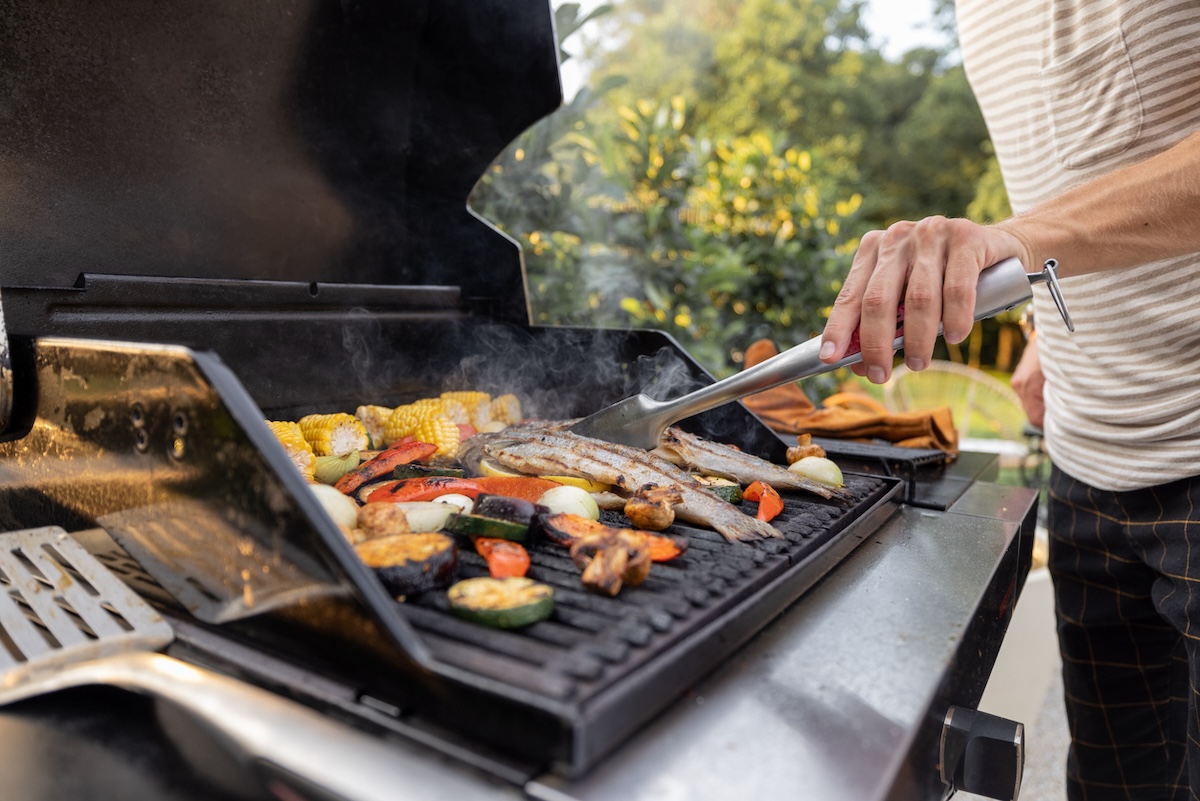We may earn revenue from the products available on this page and participate in affiliate programs. Learn More ›
If your home already uses a natural gas supply, it might seem like the obvious choice to power your grill. Plus, running a connection out to the barbecue area seems to be a lot more convenient over time than frequent visits to the store to lug around a 20-pound propane tank for a gas grill.
However, the answer to the natural gas vs. propane grills question isn’t that simple, and there are a number of key considerations that can impact this decision. We’ve been looking at the pros and cons of each of these popular grill fuels, and the following article will help you make a properly informed choice.
In addition to our own experience and research on this topic, helpful insights from Roberto Carvajal, general manager of gas grills at Weber, are included below.
Efficiency and Performance
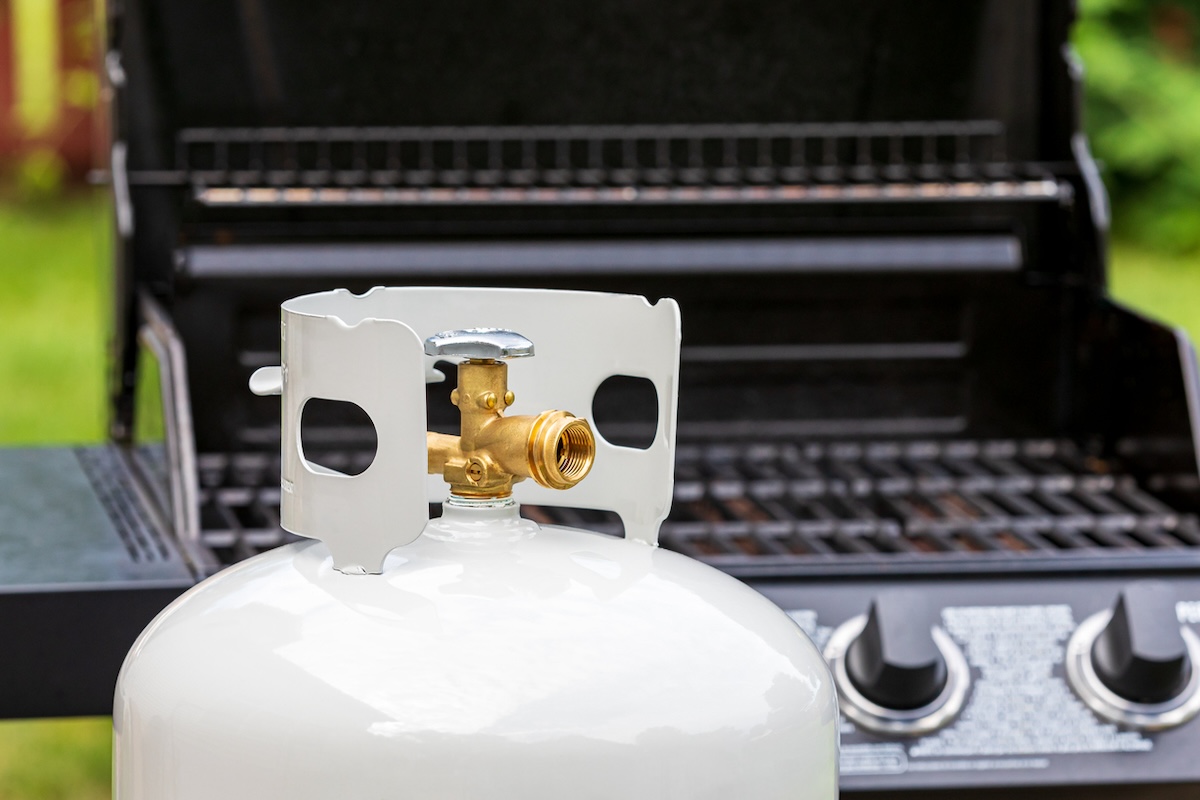
When we compare a natural gas grill vs. propane in the battle for out-and-out performance—or which burns hotter—it’s pretty much a tie. While atmospheric conditions and altitude can have a minor impact, both gasses can burn at up to 3,560 degrees Fahrenheit. Searing steaks only requires around 500 degrees Fahrenheit, so both fuels are more than capable of producing enough heat for typical grill cuisine.
It’s a different story when it comes to efficiency. Propane delivers much more energy per volume. In other words, if you have the same amount of both, you get more heat out of the propane. Natural gas delivers about 1,012 BTUs (British Thermal Units) per cubic foot. Propane delivers more than double that, at around 2,530 BTUs per cubic foot. Bottom line, even the best natural gas grills use way more fuel than the propane equivalent.
Upfront and Ongoing Costs
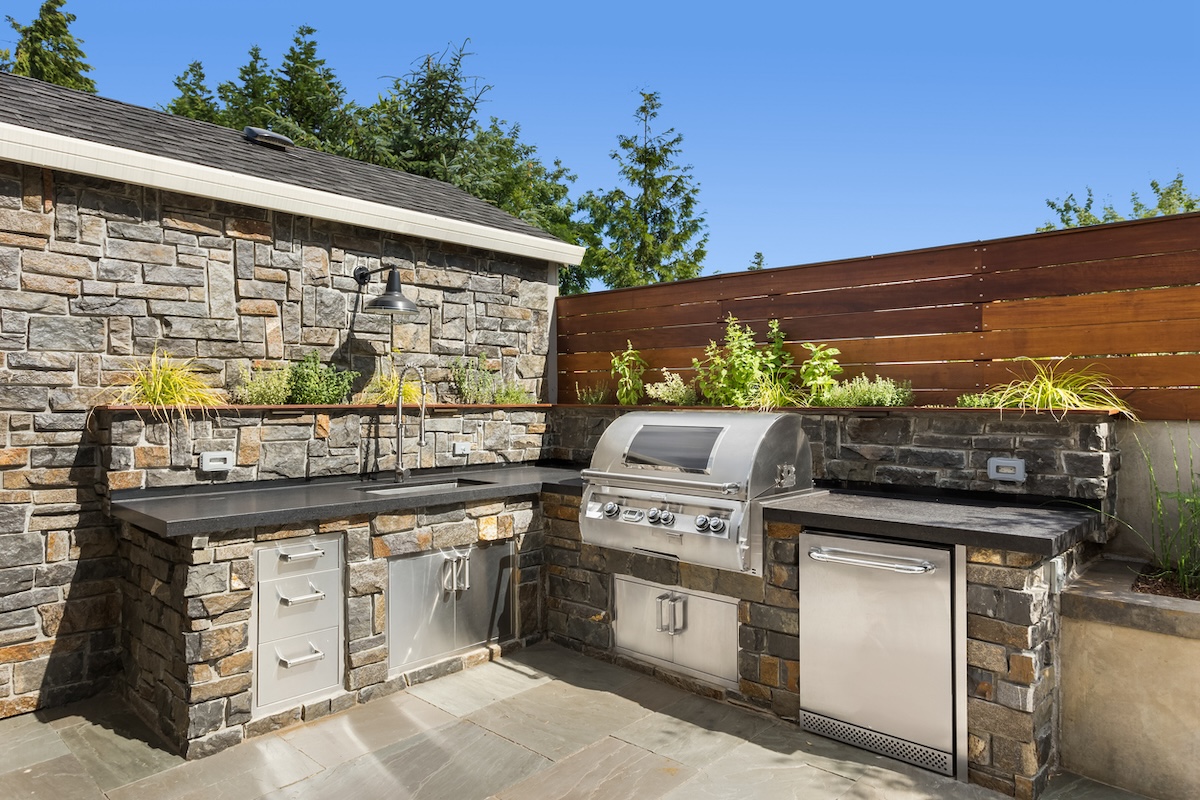
There are several issues that impact cost. First, there’s the upfront price. In our recent review of the best barbecue grills under $1,000, only three were capable of running on natural gas, and each was considerably more expensive than its propane counterpart. It’s not really about the materials used, but it’s a question of customer demand. More people desire the portability of propane for gas grills, and some areas don’t have natural gas. So it’s a question of economies of scale for the manufacturer. Whether you want a standard grill or a hybrid grill for smoking, you’ll get a wider choice of grill options with propane and it will be cheaper than a similar natural gas model.
The second issue involves installation costs. If you buy a propane grill, all you need to do is hook up the hose, regulator, and gas bottle. On the other hand, a natural gas line should be installed by a suitably qualified professional, so there is greater initial expense. That said, as Carvajal pointed out, “If you already have a natural gas line at your home, hiring a professional to complete the plumbing to pipe the natural gas out to your outdoor space can be a worthy investment. Once that outdoor line is in place, it is easy to hook a natural gas grill up and start cooking.”
Finally, there’s the ongoing fuel cost, and here’s where natural gas takes the win. Although it varies from one supplier to the next, we found the latter was at least one-third cheaper when we researched propane vs. natural gas.
Ease of Use and Maintenance
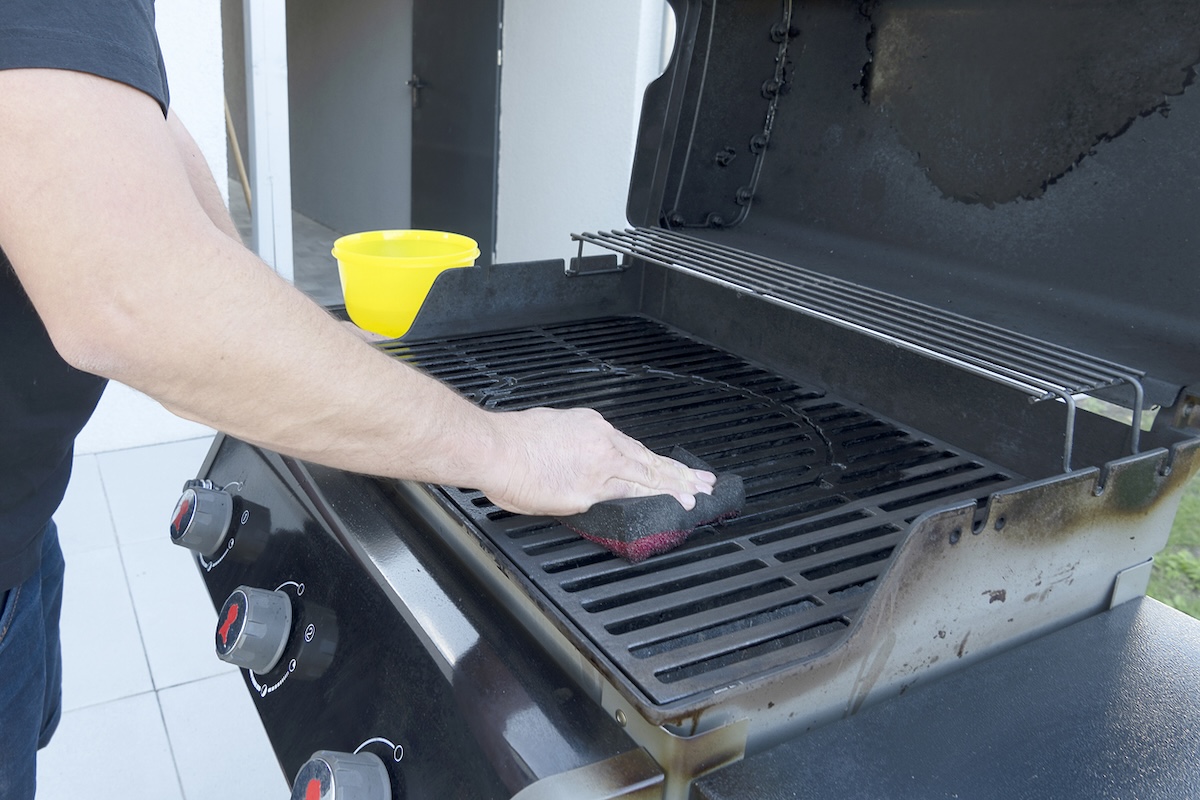
It’s important to consider ease of use and maintenance, in case there are any misconceptions about natural gas or propane among those who haven’t used either of these fuels before. Although the regulator on a natural gas grill is different from a propane model in terms of the pressure provided, that’s it. In every other way, the function and controls are very similar. In fact, several manufacturers produce grills that are identical except for the fuel supply, so how they are used is exactly the same. Carvajal agrees: “From a Weber perspective the profiles of these two fuel types are the same, ensuring a high-quality grilling experience regardless of your choice.”
The same is true when it comes to maintenance. Exact procedures for cleaning a grill and looking after it properly will vary from one model to another, but it’s no more difficult to maintain natural gas BBQ grills than propane versions.
Safety and Environmental Friendliness
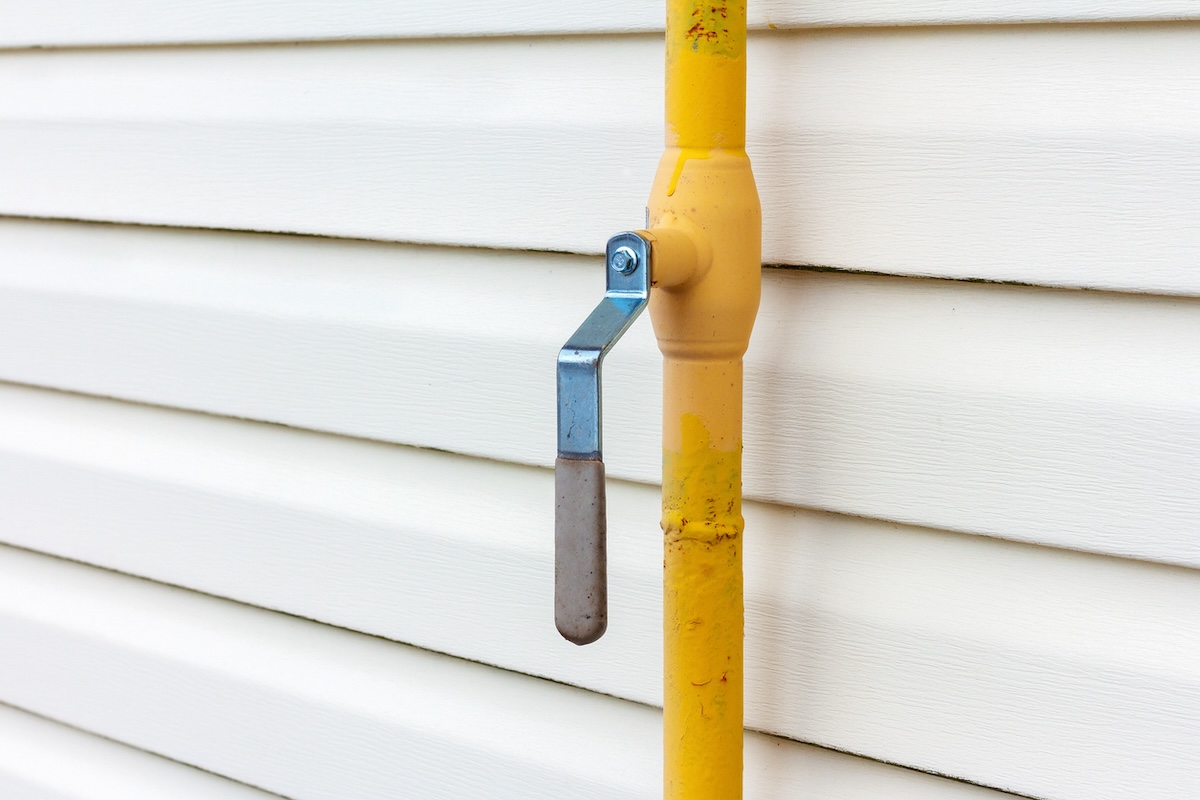
Natural gas and propane are both perfectly safe as grill fuels as long as obvious precautions are taken. Both are highly flammable and potentially explosive, so it’s important gas lines and equipment are checked regularly. If leaks are discovered, they need to be repaired or parts need to be replaced immediately.
At first glance, propane is more environmentally friendly than natural gas because it produces lower emissions when burned. Some cities are banning natural gas because of climate issues. However, both gasses are products of gas or oil drilling, and there’s also the production and transportation of propane to add to the equation. Interestingly, the U.S. EIA (Energy Information Administration) tells us both gasses produce lower emissions than burning charcoal when comparing gas vs. charcoal grills. As is often the case with sustainability issues, the real answer is complex.
If propane seems like a better choice for you and you already own a gas grill, you could convert a natural gas grill to propane with a kit. However, kits aren’t suitable for all models and Weber warns that attempting to do so will invalidate any warranty.
Final Thoughts
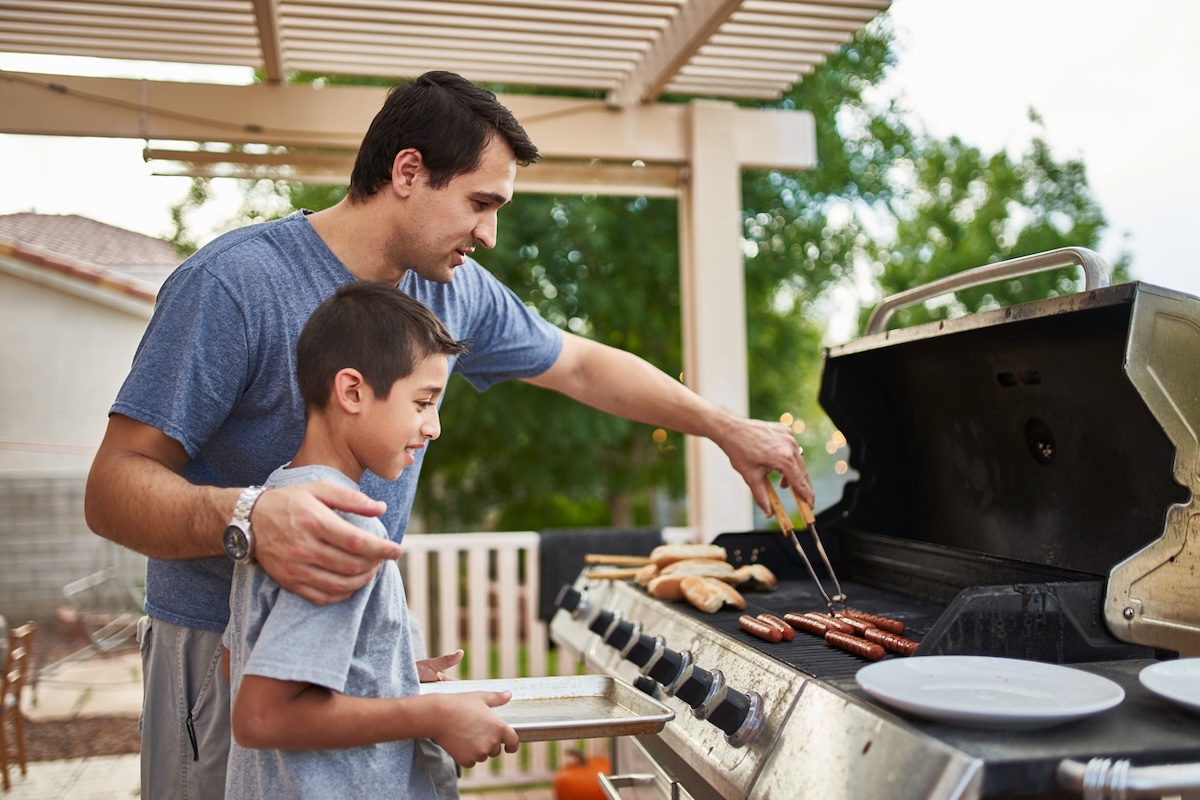
We think there’s a clear winner in our natural gas vs. propane grills match up. For most people, a propane grill will be the better choice, but it’s important to assess your own situation and needs before deciding.
Propane grills cost less to buy, there’s greater choice with propane grills, propane is better for the environment, and it’s easy to find a small propane gas grill but natural gas outdoor grills tend to be considerably larger. There’s also versatility. As Robert Carvajal says: “This is particularly appealing to those who enjoy grilling both at home and on the go, whether it’s for camping, picnicking, hiking, or tailgating. You can’t take a natural gas grill tailgating or camping.” And even though propane is more expensive than natural gas, you need less of it so the cost difference isn’t as big as it first seems.
However, there are a few situations where natural gas can be a better option. If you already use natural gas for heating, then extending it into the yard is relatively simple. It’s also a popular option for built-in barbecue areas where mobility isn’t an issue. And those with reduced physicality don’t need to heft 20-pound bottles to fuel a natural gas grill.

